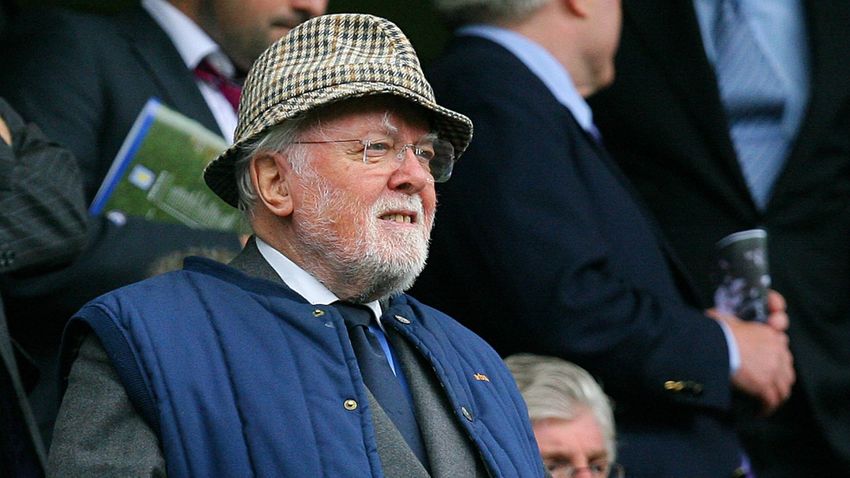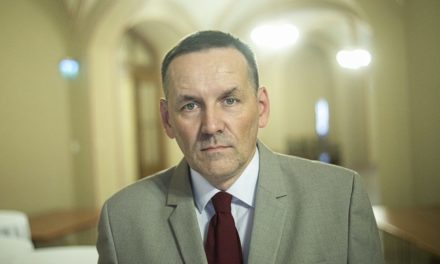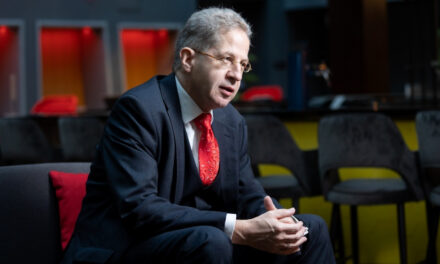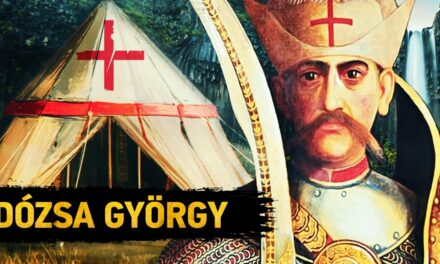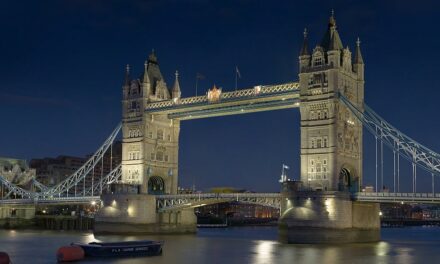One hundred years ago, on August 29, 1923, Lord Richard Attenborough, Oscar-winning English film director and actor, was born. The MTVA Press Archive reported in a portrait about why this is important, what the film industry and culture owe to the famous creator.
Born the eldest son of a Cambridge intellectual family, his younger brother David, who became famous as a naturalist and creator of blockbuster nature films, earned him a knighthood and the accompanying title of Sir. Richard was a lover of acting from an early age, and in 1941 he was admitted to one of the most famous acting schools in the world, the Royal Academy of Dramatic Art (RADA) in London. Although his teachers thought he was too stocky and short to play romantic roles, later that year he made his stage debut playing a lovelorn teenager in a play by Eugene O'Neill.
His film career began in 1942 with the war film Rendülentlen, during the Second World War he appeared in several propaganda films of the Film Production Unit of the Royal Air Force. The film version of Graham Greene's novel The Brighton Rock made him a real star, after which he was cast for a while in the role of characters with a working-class background who had difficulty fitting in. From the 1950s, he also took on roles in successful comedies such as Private's Progress or I'm All Right Jack.
In 1959, he founded a production company called Allied Film Makers with director-producer Bryan Forbes, and the result of their collaboration was Seance on a Wet Afternoon, directed by Forbes, for which Attenborough received the most prestigious British film award, the BAFTA Award. In the 1960s, he mainly took on roles in war films: in 1963, he excelled alongside Steve McQueen in The Great Escape, and in 1966, he played a hot-headed ship engineer in The Pebbles, for which he was awarded a Golden Globe Award in the Best Supporting Actor category. A year later, in the same category, he received the award again for his acting in the film Doctor Dolittle.
His directing career began in 1969 with the Golden Globe-winning satirical musical Oh, The Wonderful War, starring Laurence Olivier and Vanessa Redgrave.
In 1972, he ventured into the field of biographical films with The Young Churchill, and in 1977 his World War II drama, The Bridge Too Far, was released, in which even the supporting roles were played by world stars. He asked his favorite actor, Anthony Hopkins, to play the lead role in his 1978 horror film The Magician.
In 1982, his twenty-year dream came true, when he was able to film the life of Mahatma Gandhi, who achieved India's independence through peaceful means. The monumental film epic received eight Oscars, in addition to best film, Attenborough received the award for best direction, and Ben Kingsley, who played the title role, won best actor. In 1985, Dancer, starring Michael Douglas, was filmed on Attenborough's grounds, and two years later, Shout for Freedom! followed; His film about Charlie Chaplin was released in 1992, with Robert Downey Jr. playing the title role. The Shadow Country - starring Anthony Hopkins - is about the (name) marriage of CS Lewis, who wrote the Chronicles of Narnia, and was followed in 1996 by an unsuccessful work about Hemingway's years in the First World War entitled Love, War. His last direction was presented in 2007: The Ring of Love, starring Shirley MacLaine and Christopher Plummer, received a mixed critical reception.
Attenborough, who did not take on a film role for a long time after 1979's The Human Factor, appeared in front of the camera again in Jurassic Park in 1993 for Steven Spielberg's dr. In the role of John Hammond, his decision was greatly influenced by the fact that he had some remorse towards his American colleague, because at the time Gandhi took the Oscar away from Spielberg's film ET.
He also brought the figure of the eccentric investor who built the zoo to life in the 1997 sequel of the film. In 1994, he played Santa Claus in the family film Miracle in New York, and in 1998, he played Sir William Cecil, the adviser of Queen Elizabeth I, in Elizabeth, starring Cate Blanchett. It is interesting that he appeared on the screen only once in a Shakespeare work: in Kenneth Branagh's 1996 adaptation of Hamlet, he was the English messenger announcing the deaths of Rosencrantz and Guildenstern.
Of Attenborough's three children, one son became a director and one daughter an actress; he lost another daughter and one of his grandchildren during the 2004 Indian Ocean tsunami. His memoirs were published in 2008 shortly before he was confined to a wheelchair due to a stroke. The actor-director died on August 24, 2014, shortly before his 91st birthday.
During his life, he received many awards, in 1967 he was awarded the CBE, in 1976 he was knighted, and in 1993 he was made a major order, thus he was called Lord. Between 1987 and 2004 he was a UNICEF Goodwill Ambassador and from 2008 until his death he was the honorary chairman of Chelsea Football Club.
In 2003, he assumed the presidency of his alma mater, the Royal Academy of Dramatic Art, which had been vacant since the death of Princess Diana. Attenborough was one of the Princess of Wales's closest friends, and with his help Diana overcame her reclusive nature and her fear of public appearances.
On the centenary of his birth, many British cinemas are holding retrospective evenings, on September 16 at the Chiswick Film Theater in London, among others, Sir Ben Kingsley, Dame Penelope Wilton, Geraldine James and George Fenton will commemorate the excellent actor-director.
MTI
Cover photo: Lord Richard Attenborough cheers on Chelsea (Photo: Europress/AFP/Carl De Souza)

